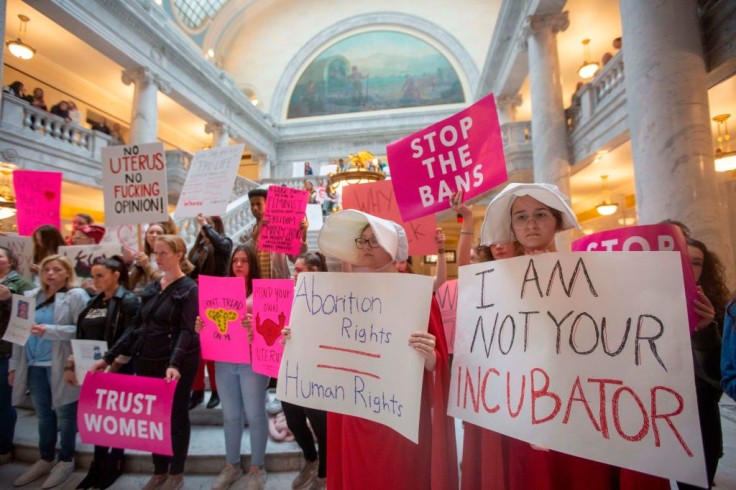
The legal battle between Planned Parenthood and women's rights advocates to halt the abortion clinic ban in Utah continues.
Starting May 3, abortion access will be severely restricted in Utah due to a new law that requires the procedure to be performed exclusively in hospitals.
Though abortion is legal in the state for up to 18 weeks, the new legislation has been challenged by the Planned Parenthood Association of Utah.
During a court hearing on Friday, the organization argued that the ban on abortion clinics would render abortion access virtually non-existent if implemented next week as scheduled. Attorneys representing both the state of Utah and abortion providers presented their arguments before state court judge Andrew Stone.
Planned Parenthood has requested that the law be delayed, and Judge Stone stated that he would rule on the motion next week after carefully reviewing each side's briefs. He explained that making a hasty decision would be unfair to either party.
Utah Awaits Decision on Possible Abortion Clinic Ban
The Associated Press reported that the Planned Parenthood Association of Utah argues that the ban on abortion clinics is a thinly veiled attempt by Utah to limit access to abortion further.
The organization claims this move is part of a broader strategy to restrict access while legal challenges to a 2020 trigger law make their way through the court system.
However, Utah officials rebuffed these arguments, claiming that the new regulations are necessary to promote high public health and safety standards.
They argue that enacting such laws is in the public's best interest, even if it reduces the overall number of providers.
The state's lawyers pointed out that courts have yet to determine whether Utah's Constitution guarantees the right to an abortion. They claim that overturning a law passed and signed by elected officials without a clear constitutional basis would be inappropriate.
The Planned Parenthood Association of Utah has expressed concerns that continuing to provide abortions after May 3 could lead to criminal charges against their clinicians.
Read Also: Michigan Student Hailed as Hero for Stopping Out-of-Control School Bus After Driver Passed Out
Utah's Trigger Laws on Abortion
According to The Guardian, banning abortion clinics in Utah could result in hospitals being the only option for abortions, which may not offer low-cost outpatient abortions or the abortion pill.
This ban, known as HB 467, was passed in March and threatened to shut down all four of Utah's abortion clinics.
In an effort to contest the law, the Planned Parenthood Association of Utah and the ACLU of Utah have filed a motion for a temporary injunction.
As per Fox13, in Utah, licensed clinics currently perform approximately 95% of the state's abortion procedures. It is uncertain how hospitals will react to the new law, as they generally do not provide elective abortions.
Jill Vicory, the spokesperson for the Utah Hospital Association, stated that each hospital system operating in the state would need to decide how to handle HB 467 for their respective facilities.
In addition to fighting against the clinic ban, PPAU and the ACLU of Utah are also battling the state's trigger law, which is an abortion ban that was enacted prior to the Roe v. Wade decision.
However, a district court judge has granted a preliminary injunction against the trigger ban, preserving the right to an abortion up to 18 weeks of gestation.
The Utah Supreme Court has yet to review and make a ruling on this injunction. The passing of HB 467 in Utah and the potential closing of all four of the state's abortion clinics are concerning issues for the reproductive rights of women.
With hospitals being the only option for abortions, low-income individuals may face significant barriers to accessing the care they need.
The ongoing legal battles, including the challenge against the trigger law, highlight the importance of fighting for reproductive rights and access to safe and affordable healthcare.
Related Article